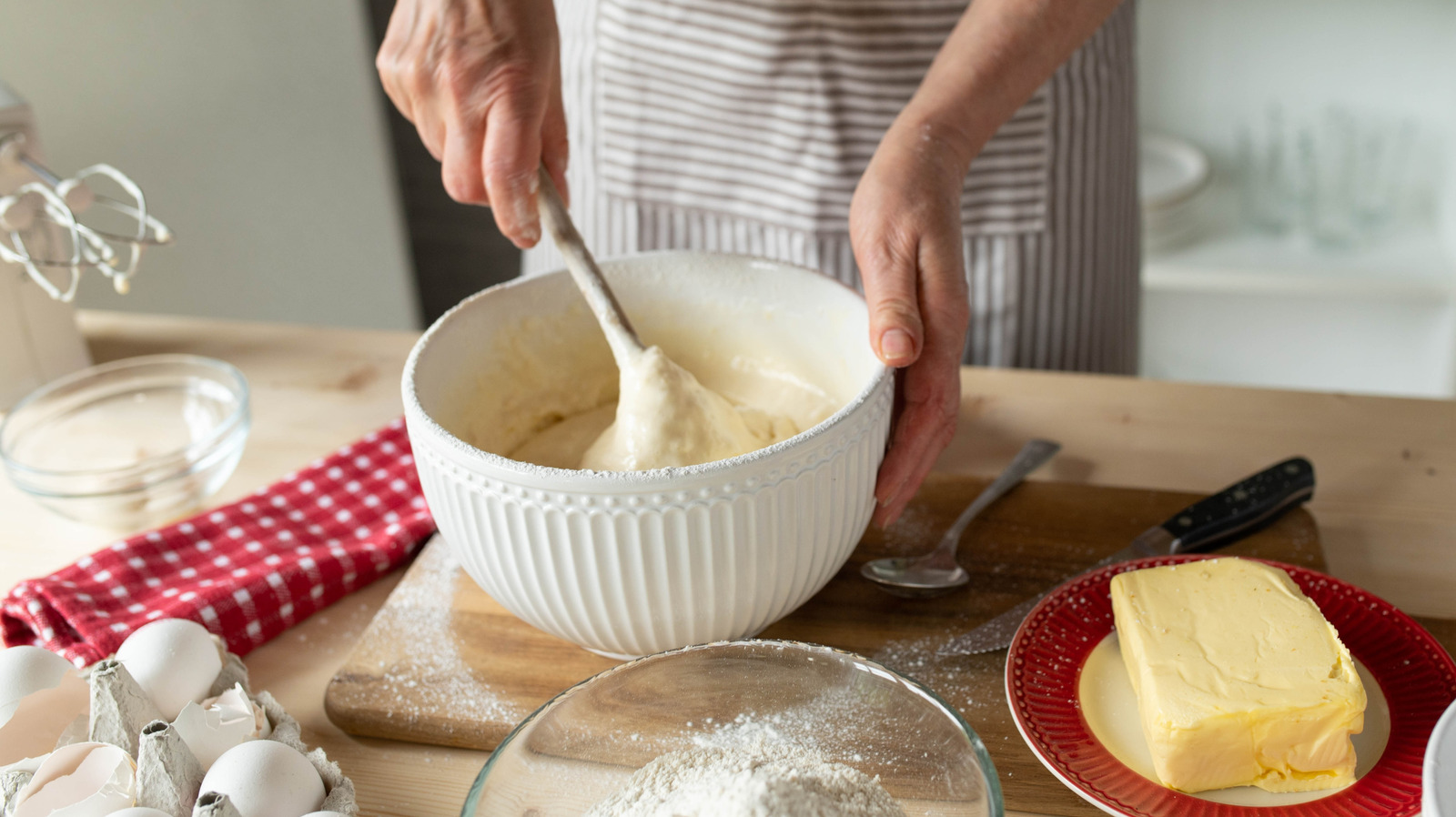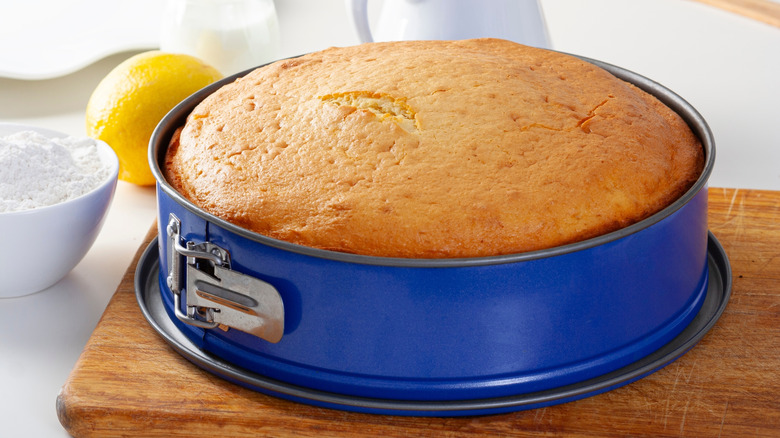When you’re preparing for a big event where you’re going to be baking a cake, it can be helpful if you can prep as much of the recipe as possible beforehand. For those whose oven might be in constant use, you can actually mix the batter up and keep it in the refrigerator for a time, before pouring it in the pan and baking it (you won’t want to store already-baked cake in the fridge, though). But for how long will it keep under those cool conditions? “Most cake batters can be refrigerated for up to 24 hours, but you’ll get the best results baking within 6 to 8 hours,” Deana Karim, owner and founder at Good Dee’s, told us at Food Republic.
“After that,” she explained, “the leavening agents — especially baking powder or soda — may lose their strength, resulting in a denser or uneven rise.” It’s the same effect, unfortunately, as using too little leavening agent (which is one of many cake baking mistakes that can and should be avoided), and as everyone knows, baking is a precise science.
Cake batters that are well-suited to a little refrigeration include those “with only baking powder, especially double-acting,” Karim noted. They “hold up better because part of the reaction kicks in from the oven heat.”
Specific batters that should skip fridge storage
Of course, not every cake batter can withstand the cool temps of refrigeration, but Deana Karim had advice for which ones should be mixed and then immediately baked. Batters with “whipped egg whites, like sponge cakes, tend to deflate quickly,” she told us. “Refrigerating them can cause the air to collapse, ruining the light texture.” You can use as much cream of tartar – the one ingredient you should never substitute in an angel food cake — as you like, but if you don’t get that it in the oven immediately, it’s going to fall flat.
She also advised against refrigerating batters where baking soda is the only leavening agent, as it is “reactive with acidic ingredients as soon as it’s mixed, so it starts working immediately.” In case you weren’t aware, if a recipe calls for baking soda, it will almost always call for an acidic ingredient to create the leavening reaction. If you wait too long to put the batter in the oven, it can “cause the rise to fizzle” before it even hits the heat, leaving you with a flat disc instead of a beautifully lifted and airily textured cake.





